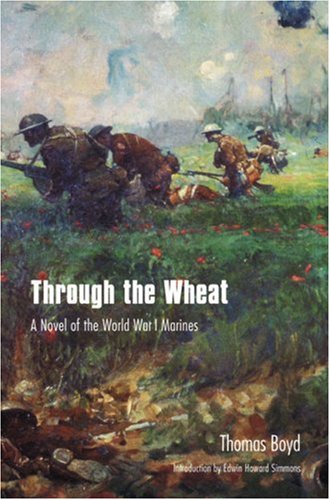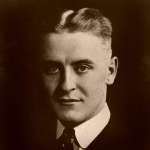Background
Thomas Boyd was born on July 3, 1898, in Defiance, Ohio, United States. He was the son of Thomas Alexander and Alice (Dunbar) Boyd.


('Through the Wheat' depicts the horrors of World War I: t...)
'Through the Wheat' depicts the horrors of World War I: the first modern war fought in trenches with mustard gas, artillery, and tanks. Thomas Boyd brings home the psychological damage done to men under extreme pressure fighting for their livers thousands of miles from home.
http://www.amazon.com/gp/product/0803261683/?tag=2022091-20
1923

(This book tells the story of a British scout among the In...)
This book tells the story of a British scout among the Indians during the American Revolution. The book was received with less enthusiasm than Through the Wheat, but reviews found many favorable things.
https://www.amazon.com/Dark-Cloud-Thomas-Boyd/dp/B003VZZL8M/?tag=2022091-20
1924
Thomas Boyd was born on July 3, 1898, in Defiance, Ohio, United States. He was the son of Thomas Alexander and Alice (Dunbar) Boyd.
Boyd studied at educational public schools. He dropped out of high school without graduating, joining the Marines in order to fight in World War I.
Boyd began military service in France, with the Sixth Regiment. He served with honor, but his service ended when he was injured in a gas shell explosion. Upon his return stateside, he got a job as a reporter for the Saint Paul Daily News; through this position, as well as his role as part-owner of a bookshop, he came in contact with writers such as Sinclair Lewis and F. Scott Fitzgerald. As a result, his own literary ambitions began to blossom. He at first began writing short stories of his war experiences but decided he needed to write a novel to express the breadth of his vision.
Boyd completed his novel of war, Through the Wheat, in 1922. The book was initially rejected. Editor Maxwell Perkins of Scribner’s wrote him an encouraging letter, but he doubted whether the book was salable in its present condition. Ultimately, however, Perkins felt that it lacked a strong central hero, and desired a longer, more fleshed out work. However, F. Scott Fitzgerald was shown a copy of the book and agitated for its publication. Boyd immediately began writing a new novel, The Dark Cloud, which was published in 1924. The Dark Cloud was followed by Samuel Drummond in 1925.
Boyd’s success as a novelist encouraged him to give up journalism to focus on his more literary endeavors. He moved to Connecticut with his wife, Margaret Woodward Smith, who also wrote novels, under the name Woodward Boyd. In 1925, he also published a second World War book, Points of Honor. In 1928, he published Shadow of the Long Knives and Simon Girty, which were complimented for the realism that had made his war novels so impressive. Biographies of Revolutionary War heroes Anthony Wayne and Henry Lee, Mad Anthony Wayne and Light-horse Harry Lee came out in 1929 and 1931 respectively.
Living in Woodstock, Vermont, Boyd began to take a more direct interest in politics. His work had always shown a deep commitment to and concern for his fellow-men; Boyd carried this further, joining the Communist party in 1934. He ran for Governor of Vermont under the Communist banner that year, and was nominated by his party, though he did not win the general election. He also became an active participant in the League of American Writers, and supported the American Writer’s Congress.
Boyd traveled to New York City in 1935 to assist in preparing his two latest works for publication. One was a biography of John Fitch, who invented the earliest working steamboat, and the other a sequel to Through the Wheat called In Time of Peace.
In 1934, Boyd came full circle: Maxwell Perkins of Scribner’s, who had initially rejected Through the Wheat, rejected a novel provisionally called “Trampled Grain,” because he did not believe it would sell enough copies in a depressed book market.
Boyd died before his last two accepted works saw print; he suffered a stroke in a taxi-cab in New York, and died two weeks later of a cerebral hemorrhage, on January 27, 1935, in Ridgefield, Connecticut.
Thomas Boyd is best known for the novel "Through the Wheat," long considered the greatest American novel of World War I. He had written for only twelve years, but in that time he produced a total of ten books, two of which are still considered important. The books on World War I, although they were never bestsellers, remain as frank testaments to the devastation of warfare.
('Through the Wheat' depicts the horrors of World War I: t...)
1923(The book contains eleven short stories, one of which, “Th...)
1925(This novel examined the American farmer from the middle o...)
1925(This book tells the story of a British scout among the In...)
1924In 1934, Boyd joined Communist Party.
On October 15, 1920, Boyd was married to Margaret Woodward Smith, a novelist under name Woodward Boyd. Then, he married Ruth Fitch Bartlett. From his first marriage, Boyd had a daughter, Elizabeth.

